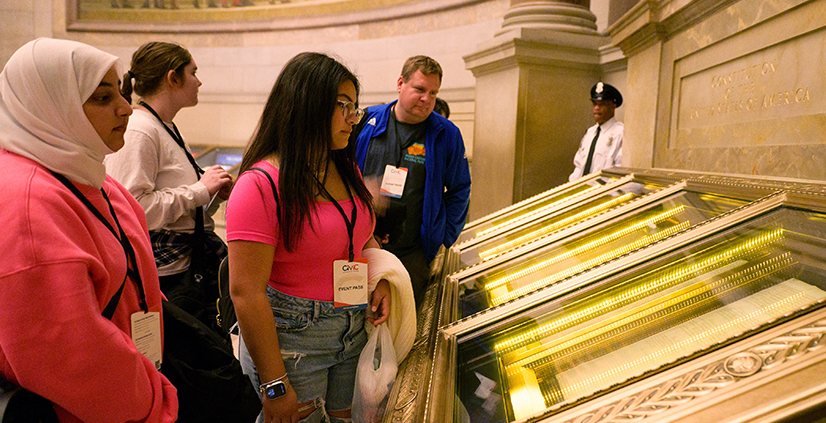|
STATE POLICY MENU
Strengthen Civics Course Requirements


Challenge
Current data on civic knowledge is alarming. The 2023 Annenberg Civics Knowledge Survey found that about one in six Americans could not name any of the three branches of the U.S. government, and most Americans could not name all of the rights protected under the First Amendment. Eighth graders’ scores in civics registered their first decline since testing began in 1998, according to data from the 2022 National Assessment of Educational Progress.
Solution
State Policy Options
- High School: Require a full-year, stand-alone civics course aligned with the Roadmap to Educating for American Democracy (see Align State Standards with Consensus and Best Practice), with an opportunity for students to engage in practices of constitutional democracy, develop agency, and reflect and improve through formative and summative assessments.
- Middle School: Require a stand-alone semester of civics aligned with the Roadmap to Educating for American Democracy.
- Elementary School: Require that elementary students have more time devoted to civic learning. Allow for flexibility in incorporating interdisciplinary connections with math, science, and language arts. (At a minimum, CivxNow recommends K–2 students should experience at least two 45-minute social studies blocks weekly, and grades 3–5 students should experience at least four equivalent blocks.)
Example
New Hampshire’s bipartisan “More Time on Civics” bill, was signed into law by Governor Chris Sununu (R–NH) on August 4, 2023. This legislation requires that educators focus on civics and increase the time spent on the teaching of civics, particularly in the elementary and middle grades.
Resources
- Model bill language
- State-specific K–12 civic learning profile
- 2023 Annenberg Civics Knowledge Survey
- 2022 National Assessment of Educational Progress (NAEP) results for civics and history
For one-to-one support and/or technical assistance, please contact our state policy staff.






